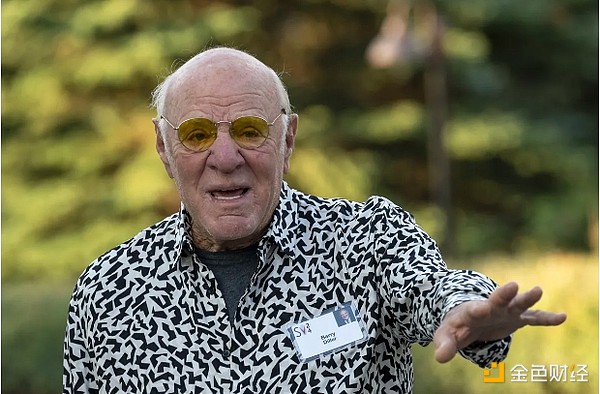By Saleha Mohsin, Todd Gillespie, Sonali Basak, Bloomberg
Major Democratic donors on Wall Street are increasingly urging Kamala Harris’ team to replace top regulators Lina Khan and Gary Gensler if Harris wins in November.
In calls with her staff and at fundraisers, deep-pocketed donors have repeatedly called Khan, the Federal Trade Commission chair, a hindrance to the tech industry and other lucrative sectors of the economy, according to people familiar with the matter. Private conversations about replacing her have intensified since IAC Inc. Chairman Barry Diller and LinkedIn Corp. co-founder Reid Hoffman publicly called for her ouster in July, with the latter saying Khan is “waging war on corporate America.”
Khan, 35, who was appointed by President Joe Biden in 2021 and is a favorite of progressive Democrats such as Elizabeth Warren, called her appointment “big news.” Her tenure at the FTC has frustrated dealmakers from San Francisco to New York, who have seen a relative dry-up of activity in recent years.
Democratic donors on Wall Street may continue to lobby privately for Khan’s replacement, some of the people said. But they stressed that it’s unlikely any of them would withhold donations over Harris’ fate at the FTC, and that Harris’s position on Khan hasn’t been made clear to donors.
Meanwhile,both Democratic and Republican donors privately dislike Gensler, whose term as SEC chairman ends in 2026, some of the people said.Gensler has pushed for tighter regulation, but donors are particularly angered by his condescending rhetoric toward Wall Street, the people said.
Billionaire Mark Cuban, a Harris supporter, told CNBC this week that the SEC “needs to change” and asked the vice president’s team to “put my name on the SEC.” Donald Trump promised at a cryptocurrency conference that he would fire Gensler if elected.
The Harris campaign did not comment for this article.
Douglas Farrar, a spokesman for the Federal Trade Commission, declined to comment. In an emailed statement, a spokesman for Gensler said the SEC “is making our capital markets more efficient, transparent and resilient.”
Tricky situation
The pressure to oust Khan and Gensler puts Harris in a tricky position as she tries to find a balance between courting donors and appealing to the progressive wing of her party. Despite her long tenure as a California senator, representing Silicon Valley and being well-versed in the antitrust debate, Harris is also trying to appeal to Americans who are unhappy with price gouging, big corporations and Wall Street.
Under Khan's leadership, the FTC has filed antitrust cases seeking to block Microsoft Corp.'s acquisition of video game publisher Activision Blizzard Inc. and aimed at blocking a $25 billion grocery store merger between Kroger Co. and Albertsons Co. The FTC has had a mixed record so far in blocking deals, losing two cases early on but having more success in recent litigation.
Two donors close to Harris' campaign said the argument against Khan is that the FTC's efforts to block mergers are hurting the economy. If Harris wants to portray herself as pro-growth and pro-business -- as she and her surrogates are seeking -- then Khan needs to be replaced, the people said.
Under federal law, FTC members can be fired only for "inefficiency, dereliction of duty or malfeasance," but the president can appoint another commissioner to serve as chair. While Kahn’s term is set to expire in September, she can continue to serve until the Senate confirms her successor. If Harris wins, that would allow her to choose a new FTC chair, although it could take a year or more for the nominee to make it through the confirmation process.
For Gensler, the unhappiness between the two sides stems primarily from the Securities and Exchange Commission’s (SEC) crackdown on the digital asset industry, which Gensler calls a blatant violation of securities laws.
No Compromise
Both regulators came into office with “a pretty aggressive regulatory agenda and took some big steps to try to achieve that,” said Jill Fish, a professor at the University of Pennsylvania Law School. “They don’t want to play it safe. They don’t want to compromise.”
Fish said it was a challenge to deal with different views on regulation within the Democratic Party. She said the FTC and SEC historically have had close relationships with the industries they regulate, aiming to keep their policies from being overly politically driven.
“Now, the smartest thing to do from a market and industry perspective has moved away from what’s politically salient and what’s going to make the political leaders happy — and that’s a very difficult path,” Fish said.
Hoffman, who has donated $10 million to Harris’ campaign, appeared to walk back his comments about Khan in a follow-up interview, saying he hadn’t spoken to the vice president about his concerns and trying to distinguish between his role as a donor and a tech industry expert.
Diller also said in a July interview with CNBC that he would urge Harris to drop Khan, but later walked back his comments as well.

Barry Diller Photograph: David Paul Morris/Bloomberg
Hoffman and Diller, worth $5.1 billion and $5.4 billion, respectively, according to the Bloomberg Billionaires Index, have ties to companies facing FTC scrutiny.
Many donors privately expressed displeasure with the pair’s public opposition to Khan, saying the comments were counterproductive and made it harder for a Harris administration to reform the FTC without being shackled to billionaire money, according to some of the people familiar with the matter.
 Catherine
Catherine
 Catherine
Catherine Cheng Yuan
Cheng Yuan Bitcoinworld
Bitcoinworld Coindesk
Coindesk decrypt
decrypt Nulltx
Nulltx Cointelegraph
Cointelegraph Cointelegraph
Cointelegraph Cointelegraph
Cointelegraph Cointelegraph
Cointelegraph